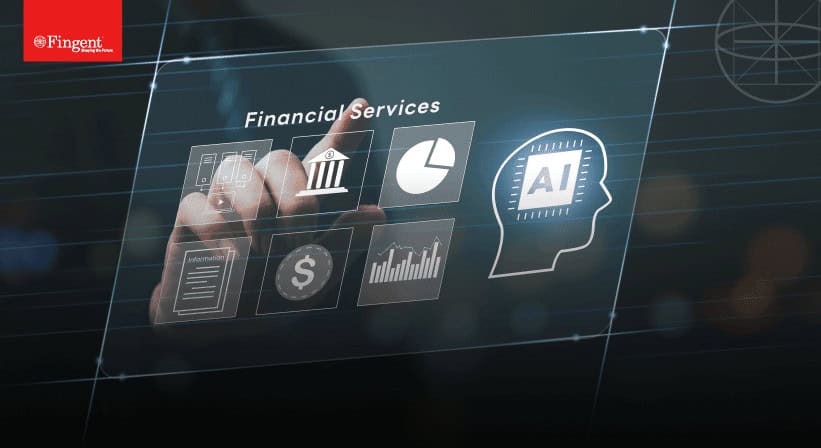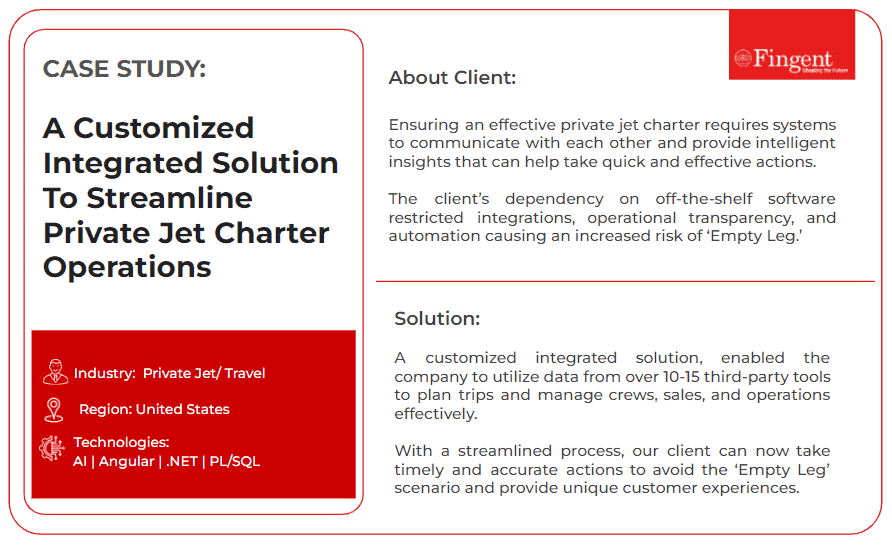Finding Success in the Aviation Business with AI
“Aviation is the branch of engineering that is least forgiving of mistakes.” – Freeman Dyson, British-American theoretical physicist and mathematician.
The truth in that statement is sobering indeed. The precision and skill needed to perfect a safe flight plan involves an army of brilliant minds. The process flows onto the nitty gritty of running the day-to-day tasks of the industry as well. That is where AI comes in.
“Artificial intelligence is not a substitute for human intelligence; it is a tool to amplify human creativity and ingenuity.” – Fei-Fei Li, co-director of the Stanford Institute for Human-Centered Artificial Intelligence.
Let us look into how AI is transforming the Aviation industry.
An Introduction to Aviation and Artificial Intelligence
The aviation industry includes nearly every facet of air travel as well as the operations that support it. By extension, this covers the entire airline sector, as well as the production of aircraft, research firms, military aviation, and much more. Aviation management includes a wide range of tasks like managing airport safety and security, air traffic control, airport operations, aircraft maintenance, and airline operations. The ideal pricing strategy for an airline will always vary depending on its unique business objectives, route network, and market competition. The use of strategic communications to market an aviation or aerospace company to decision-makers is known as aviation and aerospace marketing.
Where AI meets Aviation:
Artificial intelligence has revolutionized modern aviation, especially in connection with the modern airport. Recent reports by Radix state that “the artificial intelligence (AI) market, currently valued at $328.34 billion, is anticipated to expand by at least 120% annually”.
AI is already improving the efficiency and convenience of air travel by automating mundane procedures in airports. In the future, artificial intelligence (AI) in aviation will primarily focus on digital transformation projects to enhance customer experience, speed up procedures, lower costs, and explore many more benefits of such cutting-edge technologies. According to research, approximately 38% of airports plan to use AI for tailored marketing in the near future.
Read Case Study: How Fingent’s Customized Integrated Solution helped a Private Jet company streamline their operations.
Specific Areas AI Can Indent An Aviation Company
Artificial intelligence (AI) has already enabled autopilot technology to go from basic instruments for maintaining aircraft altitude to completely autonomous flight control systems that can operate gate-to-gate without requiring human intervention.
Furthermore, it can also be used by airlines and other operators for ground operations, flight planning, and fleet optimization. AI tools can help engineers designing airplanes create and certify goods more quickly and easily before they are even put on the market. Pricing strategy and marketing modules are two of the most critical areas that AI is impacting.
Pricing Strategies
Airlines are transforming passenger engagement and revenue optimization by utilizing Artificial Intelligence (AI) to harness the possibilities of personalization and dynamic pricing. We’ll explore three of these key artificial intelligence-driven tactics.
1. Dynamic Pricing For Tickets: Conventional pricing models frequently find it difficult to adjust in real time to changes in the market. However, this is where AI excels.
- Customer Division: AI divides travelers into categories according to their willingness to pay and purchase patterns. Different consumer segments might have their pricing methods customized to ensure that the price is appealing to them.
- Competitor Observation: Artificial Intelligence (AI) solutions enable airlines to promptly respond to shifts in the competitive landscape by monitoring the pricing and strategies of their rivals.
- Supplementary Services: AI maximizes the cost of both tickets and add-ons like checked baggage, in-flight Wi-Fi, and seat preference. Airlines can optimize their ancillary revenue by determining pricing that appeals to travelers.
2. Personalization Pricing Modules: Airlines are now able to customize services, offers, and experiences to each passenger’s specific interests and behaviors thanks to machine learning algorithms. This degree of personalization is available from the reservation procedure all the way through the in-flight encounter, leading to a flawless travel experience.
- Customer Segmentation and Profiling: To generate thorough client profiles, AI algorithms can examine a wide range of data sources, such as previous booking histories, travel trends, and even social media activity.
- Customized Deals and Services: Airlines can create customized offers once they have unique profiles in place. These customized deals increase passenger satisfaction and foster client loyalty.
3. Real-Time Demand Analysis: Real-time analysis and demand fostering generally fall under dynamic pricing, but they are also similar to personalized models.
- Analyzing Data in Real Time: AI systems monitor the market, demand patterns, and pricing strategies of rivals in real time to modify ticket prices. This guarantees airlines’ continued competitiveness and revenue maximization.
- Demand Forecasting: Artificial Intelligence is able to forecast changes in demand for particular flights and schedules. Then, airlines can modify their pricing to maximize income during busy periods or fill unfilled seats.
Marketing Model
AI is capable of analyzing enormous volumes of data to spot possible safety hazards, forecast equipment malfunctions, and support preventative maintenance, all of which increase overall aviation safety. As per reports, AI in aviation was estimated to be worth USD 686.4 million in 2022, and between 2023 and 2032, it is expected to grow at a compound annual growth rate of more than 20%. In order to manage air traffic and optimize flight routes, airlines and aviation corporations look for AI software solutions. Two key ways that AI influences marketing struggles in the aviation industry are:
1. Targeted advertising: Many neighboring industries utilize AI to optimize their advertising procedures and make them more attractive to the right audience. With passenger services like chatbots and tailored suggestions, AI can bring in more customers and revenue to airlines while simultaneously boosting customer satisfaction levels.
2. Monitor emails: The majority of requests for private flights are made via email, which means that operators must perform the tiresome chore of reviewing emails once an hour. With the help of AI, team members can react to travel requests more quickly and arrange flight schedules more easily by sifting through emails and selecting those that best fit what the business has to offer.
The Future Of AI In Aviation
By now, it must be evident how useful AI is to the Aviation industry. Furthermore, according to research, it is predicted to grow at a 37% annual rate of growth between 2023 and 2030, reaching US$ 12.1 billion by the end of 2031. Some emerging trends and advancements to look out for are:
Autonomous Aircraft: By decreasing human error, boosting productivity, and possibly even enhancing environmental sustainability, the development of autonomous aircraft might completely transform air travel.
- Data security: As AI systems are used more frequently, there is a greater need than ever for strong cyber security defenses against online threats.
- Workers Adaptation: As AI technologies are integrated, the aviation sector will need to upskill its workers and create new positions that reflect the shifting job market.
- UAVs (unmanned aerial vehicles): These drones with AI algorithms installed can effectively scan large areas, giving security operations useful data.
- Predictive maintenance: AI systems that can precisely forecast the need for maintenance by evaluating data from sensors integrated into aircraft components by reducing downtime and enhancing overall safety; this proactive strategy assists airlines and maintenance teams in identifying any problems before they become more serious.
- Customer assistance: Customers may soon be able to utilize AI-powered devices like Amazon Alexa, which can be connected to an airline’s mobile app. After that, Alexa may be used to respond to queries, deal with typical issues, track flight statuses using their numbers, manage check-in requests, and find out if amenities like Wi-Fi are available while flying.
- Passenger identification Kiosks: It is anticipated that AI will be used soon to provide self-service flight check-in. Consumers will utilize this technology in facial recognition kiosks. It is anticipated to enhance customer satisfaction and enable quicker check-ins and client flow at the airport.
How Can Fingent Help Aviation Companies Explore Capabilities with AI Better?
Here at Fingent, we believe using emerging technology can help industries reimagine processes and find possibilities in impossible challenges. We enable organizations to look beyond digitalization and create innovations that change lives by providing them with easy-to-use and quickly implemented software solutions.
Fingent combines the full force of its expertise in many facets of technology to bring you a solution that will fit your needs. This includes the power of augmented, virtual, and mixed realty, data analytics, network, and infrastructure security, and more.
We use an agile process to create dependable, high-quality, reasonably priced solutions that have an impact. In addition to our well-known post-installation care, we provide excellent customer service and knowledgeable support from the beginning to the end of the implementation. Give us a call, and lets create a custom solution that will help your aviation business reach new heights.
Stay up to date on what's new

Recommended Posts

03 Jul 2024 Financial Services
AI in Business: Preparing Leaders For The Revolution
AI in Business is a present reality! It’s a building revolution that is all-encompassing and is redefining business operations. You have only two options. Either ride on the crest of……

20 Jun 2024 Healthcare B2B
AI in Healthcare: Enhancing Patient Outcomes and Experience
Artificial Intelligence is a multi-talented assistant and has proven its worth in the healthcare industry. Healthcare organizations have found innumerable ways to use AI, from record maintenance to patient assistance.……

08 May 2024 Financial Services B2B
AI in Financial Services: Use Cases and Applications
Achieving perfection is no easy process. It is not impossible either. It takes a lot of effort and hard work but with the help of Artificial Intelligence, this process can……

24 Apr 2024 B2B
A Leader’s Blueprint for AI Success
How Are Businesses Using AI? The verdict is crystal clear—leaders today must embrace AI solutions to stay ahead of the curve and survive in the rapidly evolving business landscape. AI……
Featured Blogs
Stay up to date on
what's new















